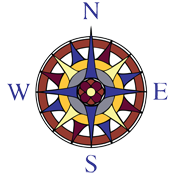English: Introduction to Literary Analysis & Writing- Elements of Literature *ONLINE/TRANSITION*
Description:
Overview
The Introduction to Literary Analysis & Writing is a high school student's first look at the higher-level relationship between literature and personal writing. Literary analysis and critical writing move a teen from being merely a good reader- a middle school skill- to becoming a scholarly reader and diagnostic writer which are the foundations of high school and college level inquiry into all forms of written works.
In this seminar-style course, literature is not restricted to a particular genre or form, and writing is not limited to a common five-paragraph composition. Instead, literature is presented as a survey, sampling many different types of works, and composition is approached as the development of a student's personal responses to what he reads. During the first semester, students will examine the basic elements of literature, and second semester will evaluate forms and genres to create a "big picture" of the development of literature.
Literature
First semester Literary Analysis will focus on the basic elements of literature- character, setting, theme, plot, and conflict- and how they interact to create story. These building blocks exist across all forms of literature, so the class may evaluate the plot in an epic poem, a character in a classic play, or the setting in a short story. Some well-known literature will be used to introduce students to the various literary elements, and new works will be studied to demonstrate the best examples of a vivid fictional universe, a strong narrator, beloved (or feared) characters, and other literary components. Examples of some literature that students may read in this course are The Catcher in the Rye (J.D. Sallinger), Nation (Terry Pratchett), The Hitchhiker's Guide to the Galaxy (Douglas Adams), A Tree Grows in Brooklyn (Betty Smith), Journey to the Center of Earth (Jules Verne), Fahrenheit 451 (Ray Bradbury), and a selection of short stories. The full reading list will be presented in the course syllabus at the beginning of the term. In addition, students may be asked to read several selections over the summer.
Composition
First semester Writing will focus on personal response to literature, with the core being a personal writing journal. The students' journals will be a place to record what they think and feel about what they are reading. Students will learn to annotate, to cite passages from text, and to format. Notes made in the journals will be used to develop short, informal written pieces about the literature read in the course. Observations from the student's journal will also be used to collect supporting, textural evidence to support the reader's opinions which will be formulated into a thesis (personal position). Written assignments will include summaries, compare/contrast analyses, and parallel structure writings that focus on character, setting, plot, conflict, etc., to further underscore and assess student's understanding of the building blocks of literature. First semester will conclude with a culminating project on a sub-genre of the student's own choosing which will analyze works for character, plot, setting, and other literary elements studied.
Class Structure This course is part of a custom curriculum developed and team-taught by Anne Sharp and Melanie Kosar. The courses are designed in a sequential program that complements the developmental skills of the adolescent learner. It is a seminar-style approach that mirrors university literature and writing classes. Note:All class meetings will be in a virtual classroom, providing synchronous online instruction via videoconferencing for fall semester. At the instructors' option, the class may transition to in-person instruction for second semester as COVID-19 scenarios improve.
Topics in this Series: Elements of Literature (Semester 1) and Forms of Literature (Semester 2). Students continuing from first semester receive priority pre-registration for second semester.
Prerequisites: Students should be able to read at grade level, and it is recommended that students have had a middle school writing class.
Workload: Students should expect to spend 3-4 hours per week outside of class. In addition, students should complete the summer assignments consisting of the literature identified above and a hand-out of literary terminology to learn.
Assignments: will be posted on a Google Classroom.
Assessments: are portfolio-based. Students will create a digital portfolio that incorporates annotated reading lists, reflects individual interests and accomplishments and showcases a variety of writing. See the Compass memorandum for more information on assessments in Language Arts.
Textbook: Students should purchase or borrow the assigned literature. In some cases, specific editions will be identified with ISBN numbers so students can be on the "same page" (literally!)
What to Bring: Students should bring paper or notebook, pen or pencil, current literature selection, and personal writing journal to both class meetings each week.
Credit: Homeschool families may wish to count this course as a credit in English for purposes of a high school transcript.
We are sorry but registration for this event is now closed.
Please contact us if you would like to know if spaces are still available.

